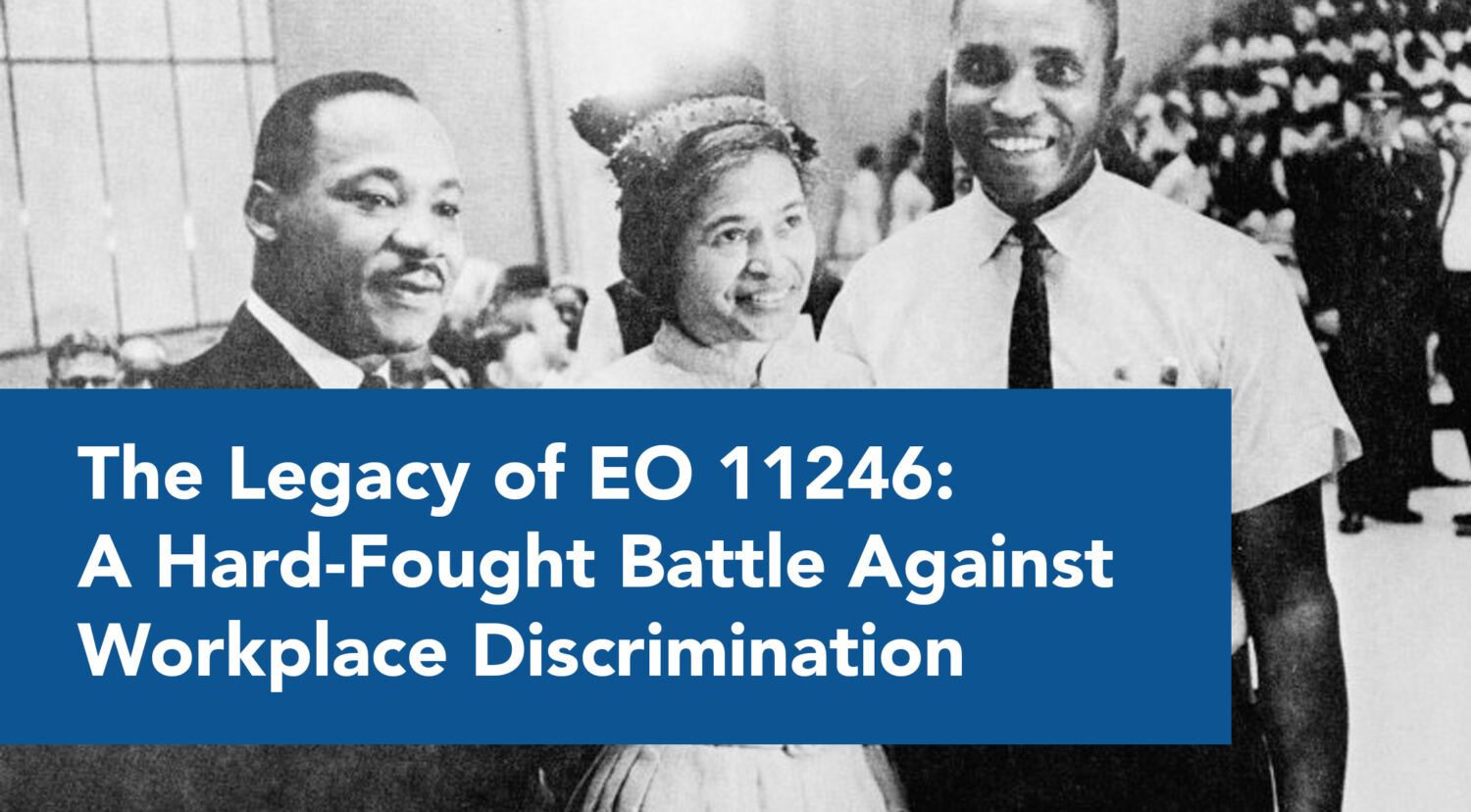By Ahmed Younies:
Last month, the US Department of Labor (DOL)’s Office of Federal Contract Compliance Programs (OFCCP) settled an ongoing case against Tufts Associated Health Plans, Inc, involving allegations of retaliation against 12 Asian, Hispanic and African-American employees hired as a result of a prior Conciliation Agreement (CA). Under the July 2013 CA, Tufts has agreed to:
Pay $372,739 in back wages benefits, interest and a sum “in lieu of rehire” to all class members;
Provide training to all managers and trainers involved in enforcing the Equal Employment opportunity and retaliation provisions of Executive Order No. 11246;
Immediately revise and implement policies and procedures to retain and preserve all employment records related to Tufts’ training program for at least two years from the later of a) the date the record is made or b) the date personnel action occurs, as long as Tufts remains a federal contractor within the meaning of Executive Order 11246.
Background:
Executive Order 11246 prohibits federal contractors and federally-assisted construction contractors and subcontractors, who do over $10,000 in Government business in one year from discriminating in employment decisions on the basis of race, color, religion, sex, or national origin. The Executive Order also requires their employment without regard to race, color, religion sex or national origin. Tufts offers health coverage options, including Medicare Part D prescription benefits, which it offers under a contract with the Centers for Medicare and Medicaid Services in order to operate a voluntary Medicare Prescription Plan. According to the OFCCP’s records, Tufts’ total contract amount for Part D prescription benefit plans just for January through May 2012 was $84.5 million, rendering Tufts a federal contractor, subject to Executive Order 11246, and OFCCP jurisdiction.
Back in November 2005, the OFCCP initiated a Compliance Evaluation (audit) of Tufts’ Watertown, MA facility. The OFCCP’s audit concluded that some of Tufts’ phone screening procedures in hiring customer service representatives resulted in more non-minorities passing the initial phone screen than minorities, leading to many more non-minorities than minorities being scheduled for tests and ultimately hired. In 2009, Tufts and the OFCCP entered into a Conciliation Agreement, in which Tufts agreed to pay $87,213 to the affected minority applicants, and to hire 19 of the rejected applicants.
Unfortunately, the matter did not end with the 2009 settlement. In March 2010, one of the 19 applicants hired under the 2009 CA filed a complaint alleging that he was terminated a) due to his race and b) in retaliation for being one of the beneficiaries of the settlement. The complainant further alleged that Tufts segregated the 19 minority class members from other employees, and held them to stricter standards during the training program than those not hired under the CA. The OFCCP’s investigated and concluded that a) Tufts retaliated against the 19 class members hired under the 2009 CA “by inconsistently administering, implementing, and monitoring” the training programs in which class members participated “to the detriment” of those class members and b) Tufts violated its obligation to retain and preserve records relating to the training program as required by the 2009 CA and Executive Order 11246.
Some Observations:
What makes this case, more noteworthy than other OFCCP settlements? Here are just a few points:
This settlement arose out of a case alleging retaliation against employees to whom a federal contractor agreed to extend offers as part of a settlement of a prior OFCCP audit, rather than a regularly-scheduled compliance evaluation.
The prior Conciliation Agreement did not end all possibility of OFCCP involvement for Tufts. Since those hired under a CA are already aware of their legal rights, they know where to go to redress mistreatment.
This case shows that the OFCCP does not just conduct audits, but will also investigate complaints by individual employees, and will accord high priority to retaliation complaints by anyone benefitting from a prior CA. Why? This type of situation speaks to the OFCCP’s ability to enforce the law, thus striking at the heart of the OFCCP’s authority.
Employer Best Practices:
What can federal contractors do going forward to ensure that its employment practices comply with Executive Order No. 11246 and avoid triggering OFCCP audits or complaints? Here are some starting points for federal contractors:
1. Train managers in their role in achieving equal employment opportunity, and, specifically make sure managers are fully aware that the law expressly prohibits retaliation of any kind.
2. Contractors who are parties to a CA involving preferential hiring of one or more alleged victim classes should provide more targeted training to managers expected to work with the new employees. The training should make it clear that such employees must be treated in the same way as other employees. This training too should ensure managers’ awareness that retaliation is expressly prohibited.
3. If the need to discharge any employee benefitting under a CA should arises, contractors should follow the same policies and procedures it uses to discharge all its employees, and should a) thoroughly document all steps taken, all communications and its reasons and b) make sure HR and in-house or outside counsel review all processes and procedures used, as well as all documentation, in order to ensure a strong defense to possible retaliation/discrimination claims.
4. Federal contractors should make sure they can honor the commitments they make or are asked to make as part of a CA before actually “signing off” on the CA. Contractors who agree to overly aggressive, ambitious requirements, particularly with respect to record-keeping, may end the audit or case for the time being, but ultimately find themselves in “hot water” if they cannot meet the requirements to which they previously agreed.
For More Information:
Readers interested in learning more about this case can find the OFCCP’s press release here. For more information on this case and best practices for federal contractors, please feel free to contact Ahmed Younies at 714-426-2918, extension 1, or email him at [email protected].





